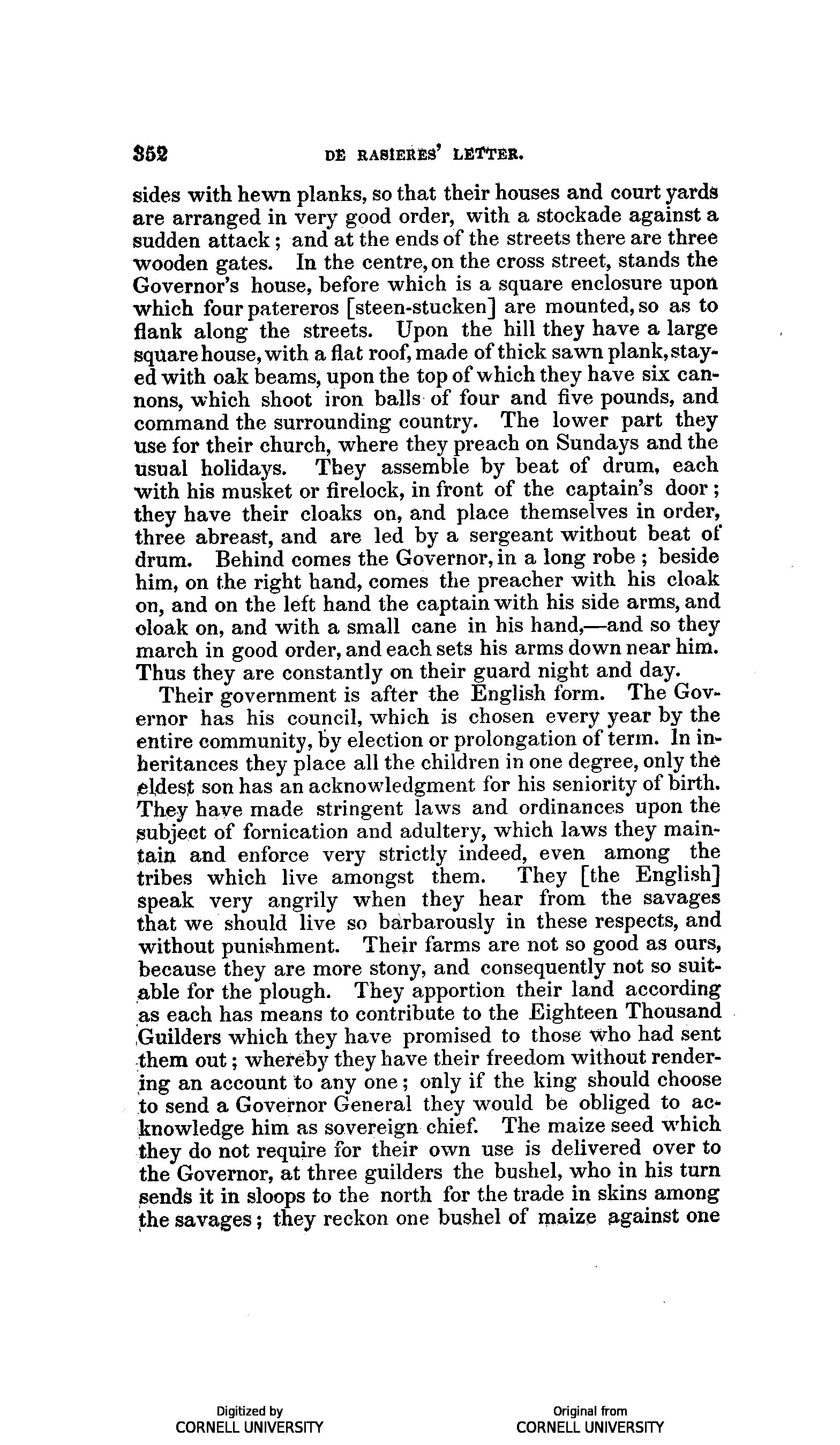Holding Institution
Document ID
Hathi102588500_014
Description
New Netherland in 1627. Letter from Isaack de Rasiere to Samuel Blommaert. Per Broadhead: “found in the Royal library at the Hague, and transmitted by Dr. M. F. A. G. Campbell to the N. Y. historical society.” Tr. from the original Dutch by J. Romeyn Brodhead. [NAHC note: Since 1866 the manuscript has been kept in the Nationaal Archief, The Hague: The original manuscript pages/images can be found here: https://www.nationaalarchief.nl/onderzoeken/archief/1.05.06/invnr/2
Document Date
1627-00-00
Document Date (Date Type)
1627-01-01


